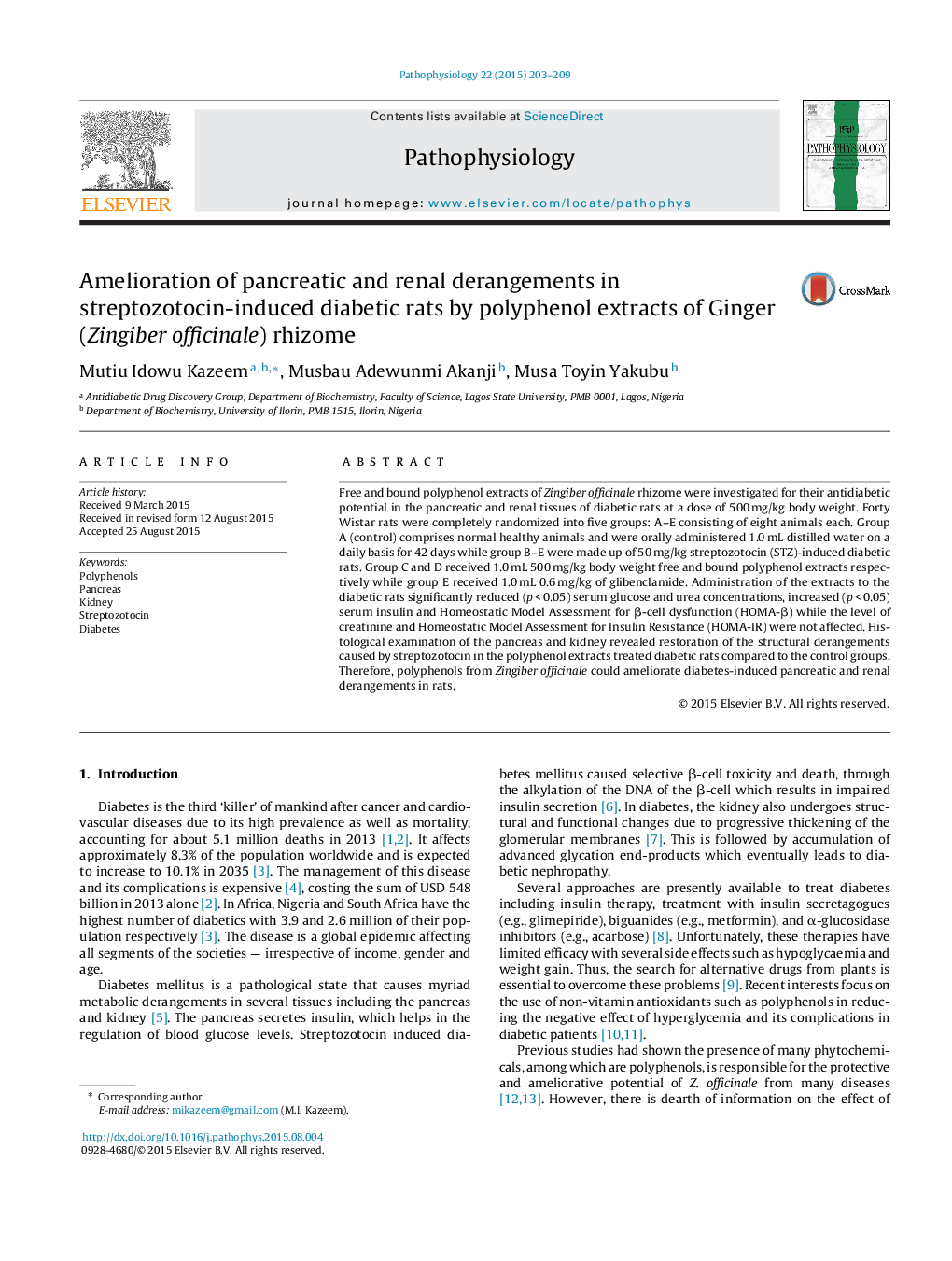| Article ID | Journal | Published Year | Pages | File Type |
|---|---|---|---|---|
| 4136964 | Pathophysiology | 2015 | 7 Pages |
Free and bound polyphenol extracts of Zingiber officinale rhizome were investigated for their antidiabetic potential in the pancreatic and renal tissues of diabetic rats at a dose of 500 mg/kg body weight. Forty Wistar rats were completely randomized into five groups: A–E consisting of eight animals each. Group A (control) comprises normal healthy animals and were orally administered 1.0 mL distilled water on a daily basis for 42 days while group B–E were made up of 50 mg/kg streptozotocin (STZ)-induced diabetic rats. Group C and D received 1.0 mL 500 mg/kg body weight free and bound polyphenol extracts respectively while group E received 1.0 mL 0.6 mg/kg of glibenclamide. Administration of the extracts to the diabetic rats significantly reduced (p < 0.05) serum glucose and urea concentrations, increased (p < 0.05) serum insulin and Homeostatic Model Assessment for β-cell dysfunction (HOMA-β) while the level of creatinine and Homeostatic Model Assessment for Insulin Resistance (HOMA-IR) were not affected. Histological examination of the pancreas and kidney revealed restoration of the structural derangements caused by streptozotocin in the polyphenol extracts treated diabetic rats compared to the control groups. Therefore, polyphenols from Zingiber officinale could ameliorate diabetes-induced pancreatic and renal derangements in rats.
